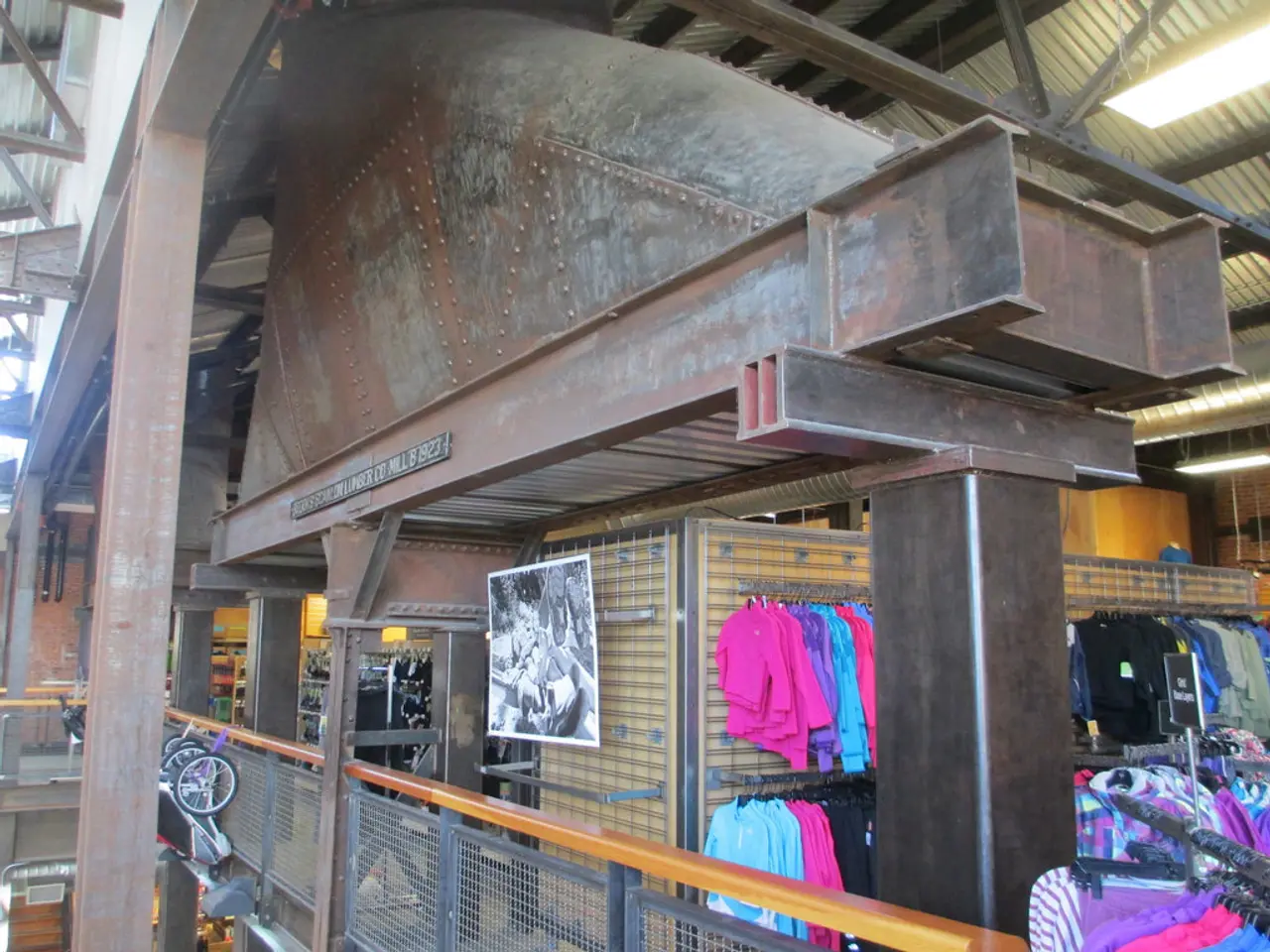Guiding Small Enterprises through Tariffs: Quest for Alleviation, Frequently Asked Questions
The ongoing impact of tariffs on American businesses, particularly small ones, is becoming increasingly apparent, with costs compounding over time. In a bid to alleviate this burden, the U.S. Chamber of Commerce has taken action, sending a letter to the administration requesting immediate relief for small businesses from tariffs.
Suzanne P. Clark, President and CEO of the U.S. Chamber, emphasised the urgency of the situation, stating that many small businesses cannot afford to wait while negotiations proceed and need immediate relief from tariffs. The Chamber is providing assistance to small businesses by answering questions, holding briefings, sharing resources, and lobbying on their behalf.
The letter outlines pragmatic, bipartisan solutions aimed at strengthening the "America First" agenda by supporting small business viability amid ongoing trade tensions and tariff policies. The main requests include delaying tariff increases to prevent additional financial burdens on small businesses and creating immediate, clear exclusions for small businesses that import goods critical to their operations.
Small businesses across the nation are facing challenges due to tariffs, including uncertainty, rising costs, and cancellations. Many are raising prices to cope with higher tariff costs, while others are negotiating with current suppliers to absorb part of the tariff costs. Some are diversifying supply chains by seeking alternative suppliers in countries with lower tariffs or exploring domestic sourcing.
The U.S. Chamber is urging a swift end to tariffs and advocating for a pro-growth agenda instead. They are also calling for a permanent end to tariff threats. Small businesses are encouraged to transparently communicate cost changes to customers and reassess budgets to reduce non-essential costs.
The tariffs imposed to date will cost the typical American household about $4,000 and will weigh more heavily on lower-income households. There are ongoing lawsuits challenging the President's authority to impose tariffs under the International Emergency Economic Powers Act (IEEPA). The court rulings on the IEEPA issue will be an important question for the future, but the President could replace the IEEPA tariffs with other tariffs under other statutes.
The Chamber has proposed granting automatic exclusions for small business importers, establishing a process for companies to apply for an exclusion, and providing exclusions for products that cannot be produced in the United States or are not readily available. The U.S. Chamber is working with members to help them tell officials how they are being harmed by tariffs.
Tariffs are taxes on imported goods paid by the U.S. business or individual receiving those goods at their port of entry. The proceeds from these tariffs go directly to the U.S. Treasury and are not earmarked for any particular use. The tariffs introduced in the year to date represent the biggest tax increase in more than 50 years, with very few exceptions, most imported goods are subject to the new tariffs.
Many advanced manufacturing industries, including aerospace, medtech, and automotive, are experiencing disruptions due to tariffs. As the economic impact of tariffs continues to unfold, the U.S. Chamber's calls for immediate relief and a permanent end to tariff threats are gaining increased attention and support.
- The U.S. Chamber of Commerce has sent a letter to the administration, requesting immediate relief for small businesses from tariffs due to their escalating burdens.
- Suzanne P. Clark, President and CEO of the U.S. Chamber, emphasised the dire straits of small businesses, asserting they cannot delay relief while negotiations persist.
- The U.S. Chamber is advocating for pragmatic, bipartisan solutions that support small business viability during ongoing trade tensions and tariff policies.
- Small businesses across the country are grappling with challenges such as uncertainty, excessive costs, and cancellations due to tariffs.
- To cope with higher tariff costs, some small businesses are raising prices, negotiating with suppliers, diversifying supply chains, or exploring domestic sourcing.
- The tariffs imposed so far will cost the typical American household approximately $4,000, with lower-income households bearing a heavier weight.
- The U.S. Chamber has proposed granting automatic exclusions to small business importers and establishing a process for applying for exclusions for tariff-critical items.
- Tariffs are fees charged on imported goods that businesses or individuals pay at their port of entry, with the revenues going to the U.S. Treasury.
- The tariffs enacted this year represent the biggest tax increase in over 50 years, with most imported goods now subject to these new tariffs.




